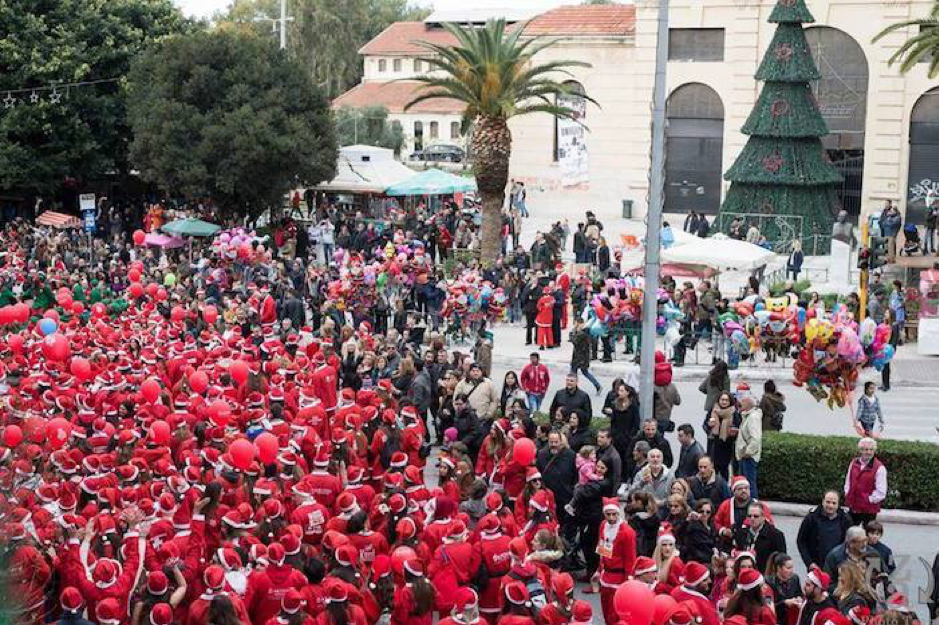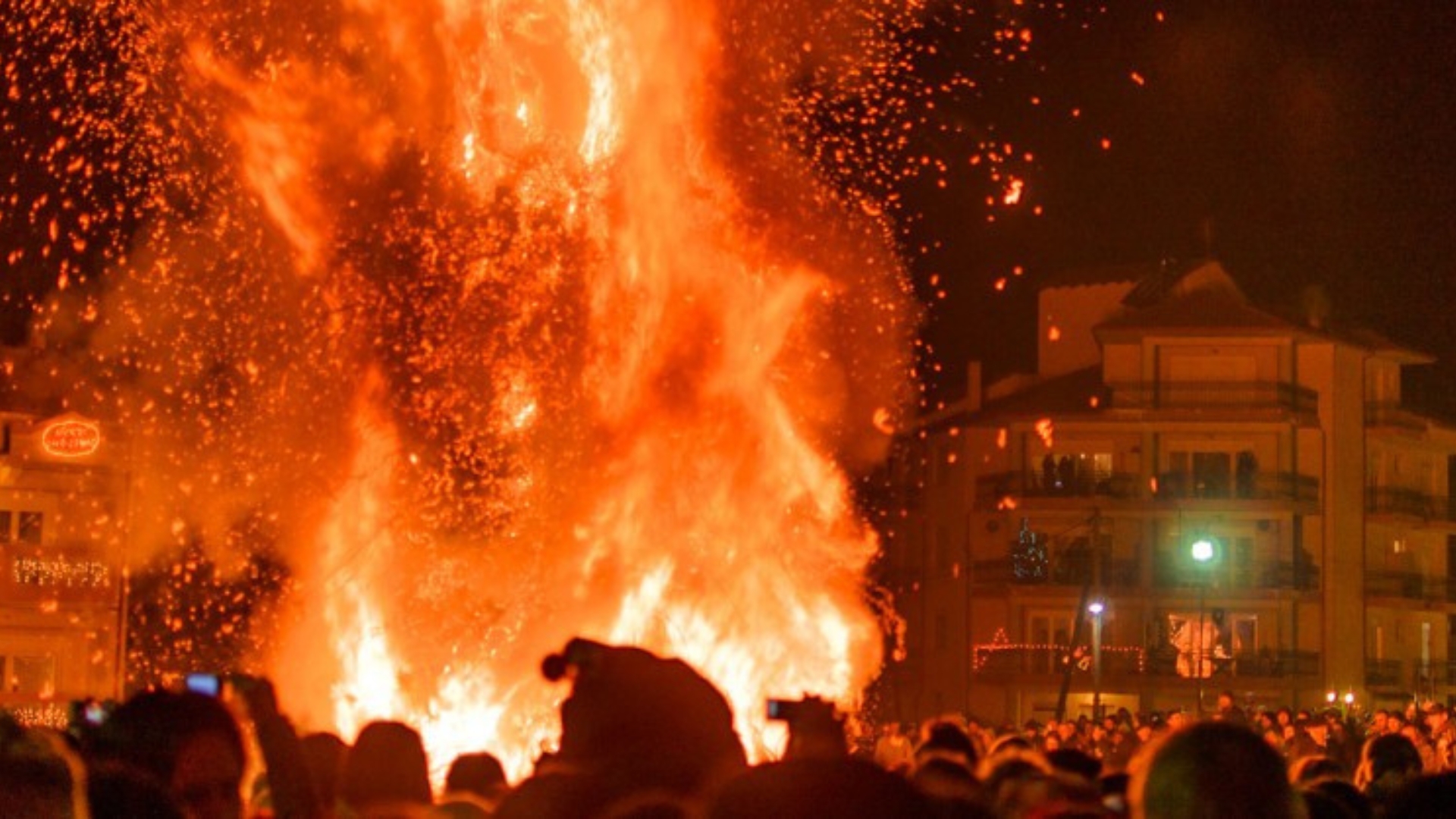By Billy Patramanis
Decorating Boats
The decorating of Christmas trees became a tradition in Greece in 1833. Originally a German and Scandinavian Christmas tradition, Prince Otto of Bavaria, who ruled Greece from 1832-1862, decorated the first tree in his Nafplio palace. Christmas trees were considered upper-class and only the wealthy would decorate trees, though this would change after World War II.
During this time, however, a famous Greek tradition in households was the decorating of boats. The tradition stemmed from Greece’s history with the sea as a maritime country. A decorated boat for Greeks was a sign of love and respect for the sea, and the welcoming of family, who were arriving by boat.
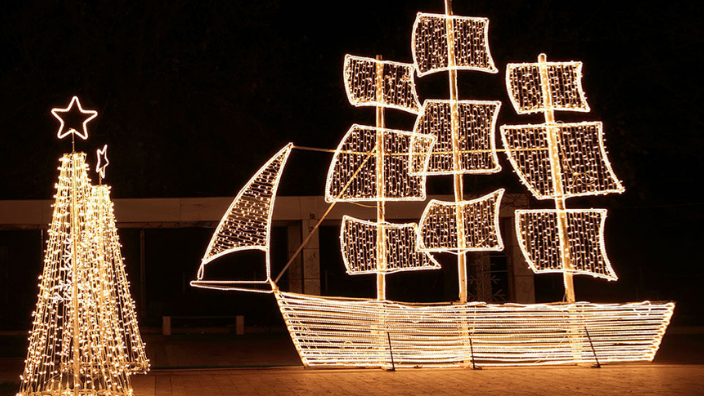
Christopsomo
The Christopsomo, or Christ bread, is a must on every Greek Christmas table. The Christopsomo has varied designs depending on region of Greece you live in, however, each design has a cross made of dough in the centre, along with nuts sprinkled on top for prosperity. The Christopsomo is eaten on Christmas Eve.
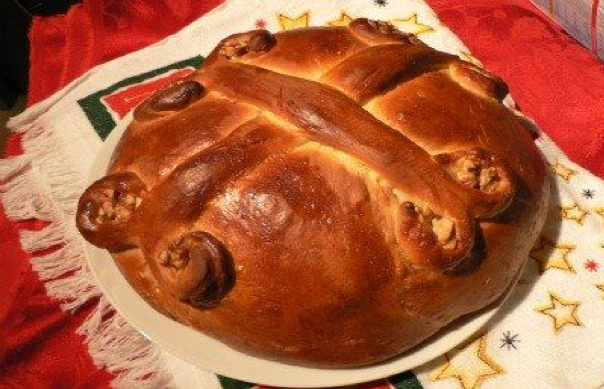
Christmas Desserts
Christmas desserts are a tradition when it comes to food for the Christmas celebrations. The two main desserts are the ‘melomakarona’ (honey cookies) and ‘kourabiedes’ (sugar-coated butter cookies). The ingredients in both are made from products that are famously Greek produced; oil, honey, oranges and nuts.
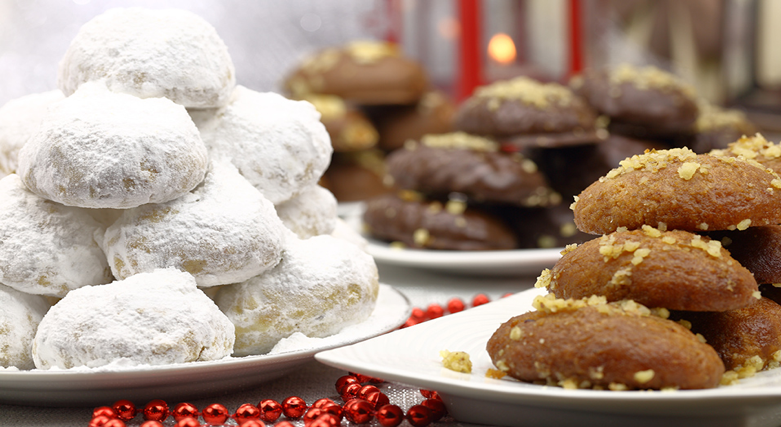
Christmas Carolling
Christmas Eve in Greece is filled with Christmas carolling from very early in the morning. Groups of children will go from door to door with music triangles and sing traditional Christmas carols, known as ‘kalanta’. The kalantas the children sing begin with Jesus’ birth, before going into songs praising the house and the people they’re singing to. The kalanta ends with the children asking for a gift, which will often be a small amount of money, as well as a dessert such as a melomakarona or kourabiedes.
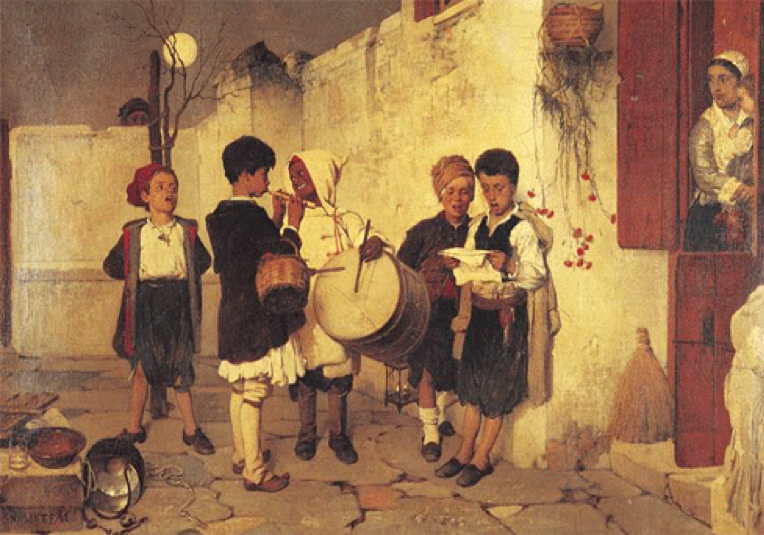
Florina Fires
In Florina, a northern Greek city, the town has a tradition every Christmas eve whereby dozens of large fires are set in the main part of the city. In ancient times, the city of Florina would begin these fires in appreciation for the sun god. However, in more modern times, these fires are started to symbolise the birth of Jesus, and more specifically, represents the fire that led the Three Wise Men to Jesus’ birth.

Volos Lanterns
On December 26, the city of Volos, a city in Central Greece, have their own Christmas tradition, similar to that of Florina. In Volos, citizens come out at night along the shore of city and release thousands of “fanaria” into the night sky. The lanterns symbolise wishes made on Christmas, hoping that when they are released into the night sky, their wishes are fulfilled.

Stand-up surfing Santas
In Parga, stand up surfing is a well known recreational sport that many in the region participate in. Therefore, during Christmas, people dressed up as Santa will begin stand up surfing in the harbour of Parga to spread holiday cheer. It is a fun tradition that mixes their beloved sport with Christmas cheer.

Cretan Santas
In Chania, a city located in Western Crete, a new tradition which began 8 years ago is growing in popularity. The new tradition consists of local residents dressing up as Santa and participating in a parade, known as the Santa Run. This new tradition had more than 10,000 people dress up as Santa in 2016, with money from the parade being donated to a children’s shelter in Chania.
